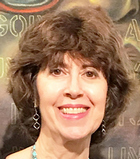A Lesson From Joseph Sebarenzi for 2011
As a writer who covers women’s issues and human rights, I am fortunate to meet many people who are on the cutting edge of working to effect change in the world.
This past October, I was invited to moderate a panel at the Pages and Places book festival in Scranton, Pennsylvania. The talk was titled, The Remains of Death: Society in the Wake of Catastrophe. Although the dialogue covered ground that included genocide, war, and natural catastrophe—it was in fact a hopeful conversation. The human capacity to rebuild what has been devastated by cruelty and destruction is indomitable.
One of the presenting speakers was Joseph Sebarenzi. I was previously not familiar with his story of survival during the 1994 Rwandan genocide. My introduction to him came through his memoir, God Sleeps in Rwanda: A Journey of Transformation. As I turned the pages, I came to know him. I felt as if I were with him from the moment in 1973 when his mother first explained that hatred existed between the Hutu and Tutsi, to his final departure from Rwanda. He returned to his country, where he served as the Speaker of the Rwandan Parliament, from 1997 to 2000. That final year, he was forced to leave his homeland to escape an assassination plot. The reason? He spoke the truth to power.
When we met the night preceding the event, I told him how profoundly his book had affected me. His quiet demeanor belied the internal strength of a man who had lost so many to the mass killing—including his parents and seven siblings. Yet, as he often says, “No suffering should derail us from who we are.”
Social justice is his mission. Part of the work that Sebarenzi is currently doing concentrates on “moving toward forgiveness and reconciliation.” Armed with numerous degrees including a Ph.D. in Law and a Masters in International and Intercultural Management, Sebarenzi is on the faculty of the School for International Training, where he teaches conflict transformation across cultures. His personal experience informs his teaching on cyclical violence borne from enmity, and victimization based on race, religion, and ethnicity.
Sebarenzi outlines reconciliation as involving several components. They encompass acknowledgment, apology, restorative justice, empathy, reparation, and forgiveness. He points out that in addition to dealing with the past, all insights must be accompanied by “forward-thinking vision.” He envisions a new model of leadership where peace education and understanding “nonviolent conflict management” is essential to the worldwide community. He writes,
People do not awake one morning and say, “I am going to kill my neighbor because he is a different color from me” (or practices a different religion from me, or belongs to a different ethnic group). The path to genocide begins long before the first shot is fired or the first machete is swung. It builds slowly, first by categorizing people. One group becomes “us”; the other becomes “them.”
Embracing forgiveness on a personal level, as well as a national and community level, is integral to Sebarenzi’s philosophy. He writes, “I was once asked by a student, ‘Can you forgive the people who killed your parents?’” He responded that it “was the genocide that was unforgivable, not those who perpetrated it.”
Traveling his singularly difficult road, Sebarenzi learned about letting go of his own anger and bitterness. While visiting prisons where Hutus accused of murder were being held in horrendous conditions, he came face to face with the mayor of his village—previously a close friend of his family. The man had been accused of instigating the order to kill all the Tutsis of the community, so that none would remain retaining a legal claim to their land. Witnessing the depth of the mayor’s suffering, he was able to acknowledge him as a person in need. He gave him money for food. Seberenzi pinpoints this pivotal experience as the moment when everything changed and crystallized for him.
Sebarenzi recognizes that forgiveness doesn’t replace justice. He states, “It does not let the perpetrator ‘off the hook.’” Rather, it lets you off the hook because your life is no longer governed by the injustices you have suffered.” As he concludes, “We all have the power to set ourselves free.”
Moving into 2011, it is a valuable concept to consider.



